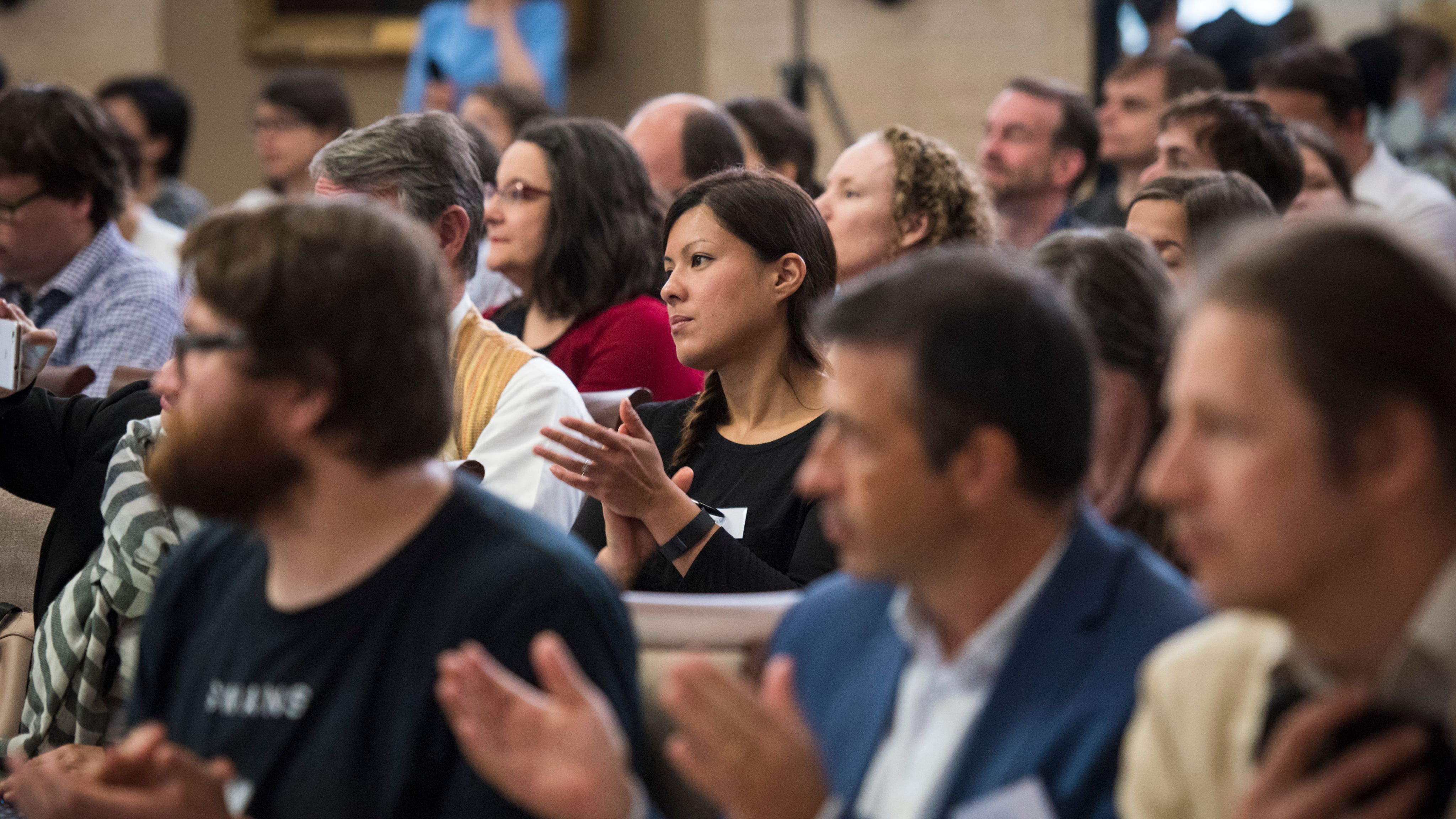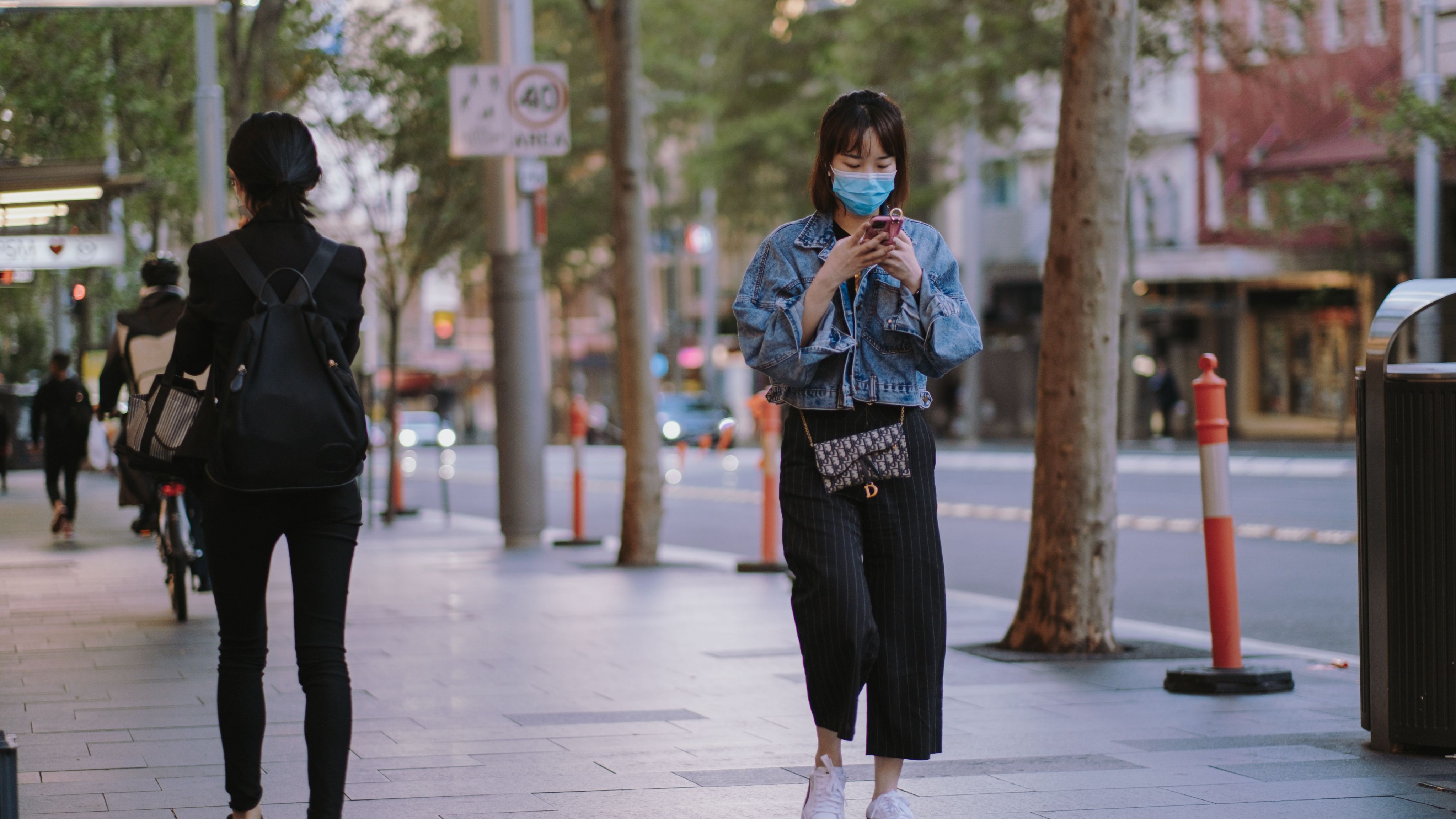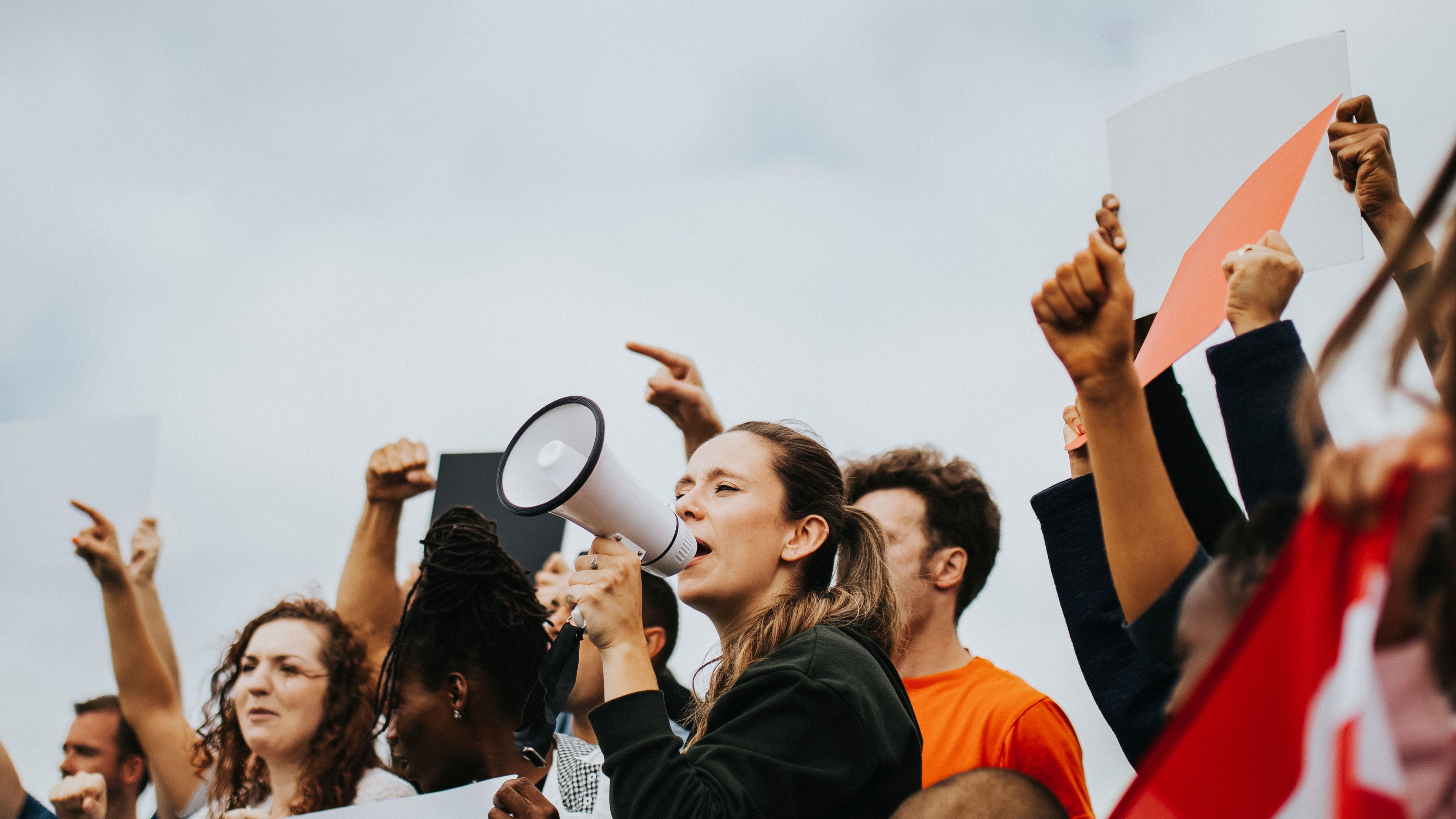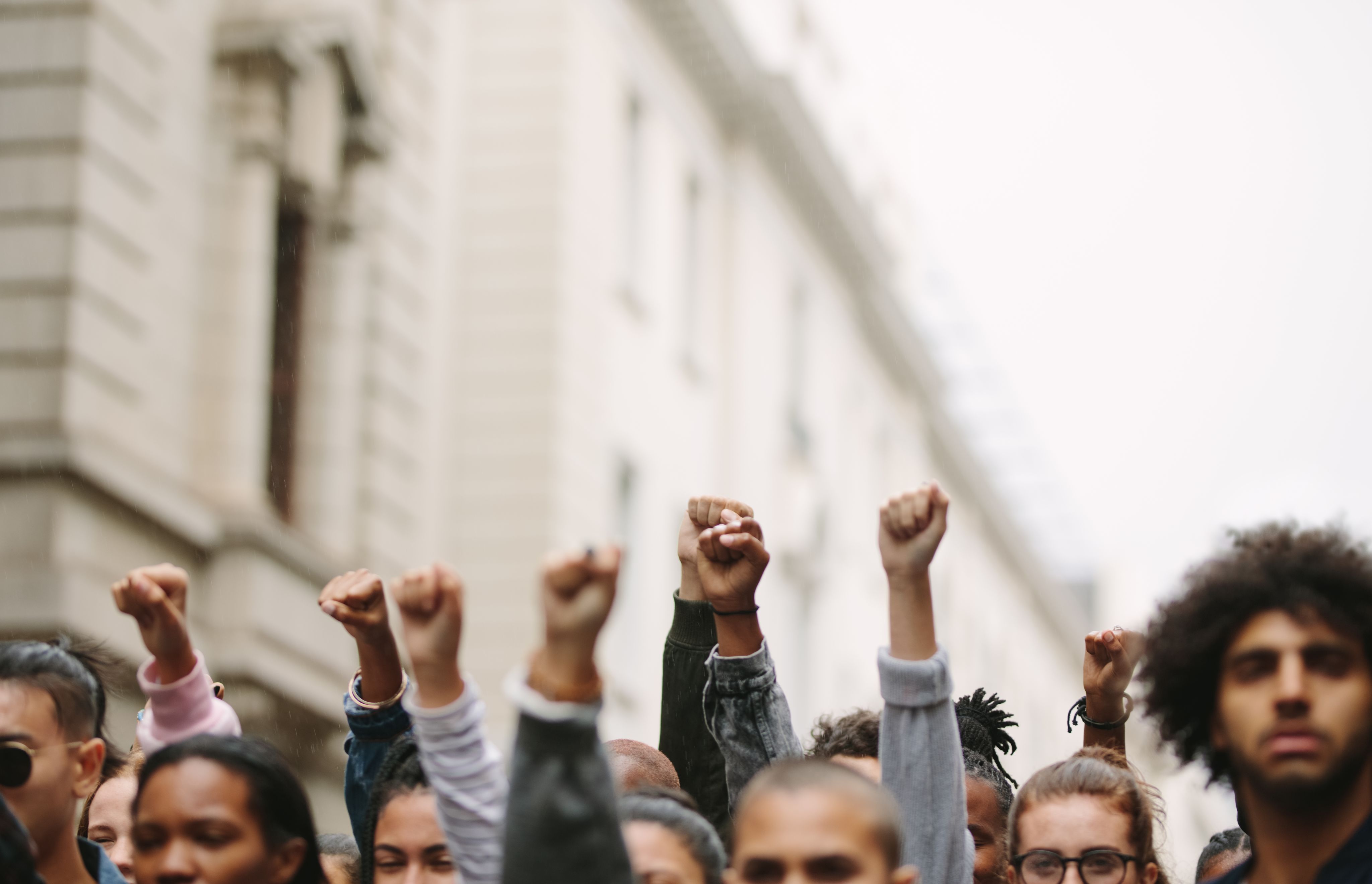Starting the conversation

In 2020–2021, the University’s School of Advanced Study (SAS) launched ‘Open for Discussion’, an annual series of online conversations exploring critical social issues and their human impacts.
Convened by experts at SAS, the series brings a multidisciplinary humanities perspective to key social issues – issues where human dimensions can frequently be overlooked in current policy debates. Each ‘Open for Discussion’ conversation features thought leaders and humanities researchers in wide-ranging discussions that present questions of policy, practice, and opportunity. The style of the events is designed to generate a range of provocations, interventions, and often policy papers to spur further discussion, mirroring the tradition of the School’s approach to humanities research.
2020–2021 Series: What the COVID-19 Pandemic Has Revealed about Us
For its inaugural series, ‘Open for Discussion’ took the theme ‘What the COVID-19 Pandemic Has Revealed about Us’. This series looked beyond the immediate impacts of COVID-19, highlighting a range of issues which have been accentuated by the pandemic – digital poverty, privacy rights, the importance of communication, the value of the arts and heritage sectors, and the types of knowledge needed to confront global challenges. Conversations also drew on the impacts of multinational events, such as the Black Lives Matter movement.

Conversations in the 2020–2021 series included:
On the Outside Looking In:
Do We Need a SAGE for the Humanities?
An exploration of how experts from humanities, social science and creative backgrounds could collaborate to inform decision making and help to shape the future. Convened by Professor Barry Smith (Director of the Institute of Philosophy), with panel members Professors Jo Wolff (Oxford), Philippe Sands (UCL), Lyndsey Stonebridge (Birmingham), cultural commentator Subhadra Das (UCL) and Professor Jeremy Farrar (Wellcome Trust).
Digital Access, Inclusion, and the Humanities
An exploration of online work, study and research; the benefits and pitfalls of digital tools; and the limitations and disadvantage the ‘digital divide’ can cause. Convened by Dr Naomi Wells (Institute of Modern Languages Research) and Professor Jane Winters (Director of the Digital Humanities Research Hub, SAS), and hosted by Michael Hayman (Honorary Professor of the Purpose Economy, SAS).
Unlocking Collections
How can institutions give access to their stored collections, share hidden and neglected histories and record cultural heritage for the future? Convened by Professor Clare Lees (Institute of English Studies) and Professor Bill Sherman (Director of the Warburg Institute.
COVID-19, International Perspectives and Transnational Collaboration
This event provided reflections on how the pandemic was handled in different cultural and geographic areas, and what humanities and languages research can contribute to cross-border collaboration. Convened by Professor Charles Burdett (Director of the Institute of Modern Languages Research).
Languages and the Pandemic: Public Health Engagement with Multilingual Communities in the UK
An exploration of how, and how much, national and local communications and responses to COVID-19 could effectively address the needs of multilingual communities in the UK, and lead to more inclusive, egalitarian, and effective public health engagement. Convened by Professor Charles Burdett (Director of the Institute of Modern Languages Research).
How Can History Strengthen Democracy?
Across the globe, liberal democracy is under challenge. What lessons can we draw from global histories to help strengthen the democratic ethos? Convened by Professor Sarah Churchwell (Chair of Public Understanding of the Humanities, SAS).
2021–2022 Series: Speaking Freely
'Speaking Freely’ is the theme of the 2021–2022 ‘Open to Discussion’ series. These online events will explore the concept of freedom of speech in both theory and practice. How can freedom of speech be reinforced, and how will new technologies and digital platforms impact our freedom to express ourselves? Above all, how do we have open debates in such polemical times? Experts from a range of UK and international sectors join the conversations to explore the legal, cultural and historical dimensions of these questions.

Conversations in the 2021–2022 series include:
Speaking Freely: Finding Words
A discussion exploring the importance of opportunities to speak freely and be heard through the ages. This event looked at the role of archives in facilitating expression, particularly for marginalised groups such as refugees, children and prisoners who may find it difficult to speak, or whose voices may not be recognised, valued or recorded. The conversation encourages us think critically about who gets to speak and who doesn't. Chaired by Professor Katherine Harloe (Director of the Institute of Classical Studies) and Professor Claire Langhamer (Director of the Institute of Historical Research).
Freedom of Expression and Human Rights
This event provided an exploration of international human rights law, its impacts on regulating freedom of speech online, and the impact of forthcoming UK law reforms on online communications and environmental protests. Dr Sejal Parmar (University of Sheffield) was the keynote speaker.
Writing Freely
How much can literary writing influence oppositional movements? It expresses resistance in subtle ways, and can even galvanise revolt. For refugees from oppressive regimes, writing can be a way to maintain opposition. Speakers with experience of Syria and the Middle East, Nicaragua and migrant communities in France share their insights and draw out a cross-cultural understanding of what ‘writing freely’ means. Chaired by Daniel Gorman, Director, English PEN and former director of European festival of Arab culture ‘Shubbak’.

Museums, Libraries and Soft Power
Wednesday 18 May
Published in March 2021, the UK government’s Integrated Review, ‘Global Britain in a competitive age’, claims that the UK is a ‘soft power superpower’. The review highlights the country’s cultural and academic institutions as one of its soft power strengths. This panel asks whether government policy, spending priorities, long-term planning, and recent actions threaten to weaken the UK’s soft power, or have already done so?
Chaired by Professor Clare Lees (Director of the Institute of English Studies), with Catriona Cannon (Senate House Librarian and Programme Director), and Professor Bill Sherman (Director of the Warburg Institute).
Other speakers will include Ruth Ur, Berlin-based international cultural projects leader, Jonathan McClory, specialist in public diplomacy and place branding and Professor Margot Finn, Professor of Modern History, UCL.
Further information and booking details on all Speaking Freely events is available on the SAS website.
